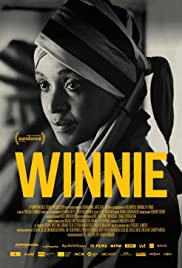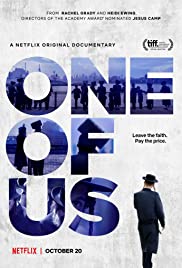
Young great white sharks risk death in an ocean phenomenon.
You May Also Like

Could the chemicals found in marijuana prevent and even heal several deadly cancers? Could the tumor regulating properties of cannabinoids someday replace the debilitating drugs, chemotherapy, and radiation that harms as often as it heals? Discover the truth about this ancient medicine as world renowned scientists in the field of cannabinoid research explain and illustrate their truly mind-blowing discoveries. QUOTES: “What If Cannabis Cured Cancer summarizes the remarkable research findings of recent years about the cancer-protective effects of novel compounds in marijuana. Most medical doctors are not aware of this information and its implications for prevention and treatment. If we need more evidence that our current policy on cannabis is counterproductive and foolish, here it is.” -Andrew Weil, M.D. “A hugely important film” – Julie Holland, M.D. NYU School of Medicine

The ChipTune Story focuses on 8-bit music and the C64 SID chip. Featuring interviews with games 8-bit music composers Rob Hubbard, Chris Huelsbeck, Ben Daglish, Mark Knight. We look at the history of ChipTune from 8-bit to 16-bit sampling.

When a trans sister, January Marie Lapuz, is brutally murdered, a community reacts and her friends and other trans women of colour come to share and voice their issues, concerns, and challenges. This film brings justice to January and to the many trans women who have lost their lives.

A follow-up documentary to the 2020 Lifetime movie about the Kamiyah Mobley case

Integration Report 1, Madeline Anderson’s trailblazing debut, was the first known documentary by an African American female director. With tenacity, empathy and skill, Anderson assembles a vital record of desegregation efforts around the country in 1959 and 1960, featuring footage by documentary legends Albert Maysles and Richard Leacock and early Black cameraman Robert Puello, singing by Maya Angelou, and narration by playwright Loften Mitchell. Anderson fleetly moves from sit-ins in Montgomery, Alabama to a speech by Martin Luther King Jr. in Washington, D.C. to a protest of the unprosecuted death in police custody of an unarmed Black man in Brooklyn, capturing the incredible reach and scope of the civil rights movement, and working with this diverse of footage, as she would later say, “like an artist with a palette using different colors.”

Living by the mantra ‘it’s easier to raise boys than to repair broken men’, martial arts sensei Jason Wilson tenderly guides his often-troubled young Detroit students with a beautifully effective blend of compassion and tough love.

George’s Best Stuff is a compilation of Carlin’s legendary routines, including “A Place For My Stuff,” “Dogs and Cats,” Vitamins,” “Baseball and Football,” “Losing Things,” “Al Sleet the Hippie-Dippie Weather Man,” the notorious “Seven Words You Can’t Say on Television,” and many more. A great collection of some of the best standup comedy ever performed.

While her husband served a life sentence, paradoxically kept safe and morally uncontaminated, Winnie Mandela rode the raw violence of apartheid, fighting on the front line and underground. This is the untold story of the mysterious forces that combined to take her down, labeling him a saint, her, a sinner.

While in San Francisco for the promotion of her last film in October 1967, Agnès Varda, tipped by her friend Tom Luddy, gets to know a relative she had never heard of before, Jean Varda, nicknamed “Yanco”. This hitherto unknown uncle lives on a boat in Sausalito, is a painter, has adopted a hippie lifestyle and loves life. The meeting is a very happy one.

Penetrating the insular world of New York’s Hasidic community, focusing on three individuals driven to break away despite threats of retaliation.

Over the past six decades, thousands of women across the globe have become sick with an amalgam of mysterious and severe autoimmune disease symptoms. The common denominator in many of their cases? Breast implants. One such woman is beloved singer and media personality, Michelle Visage (RuPaul’s Drag Race) who, here, allows the audience into her journey to find wellbeing via “explant” surgery to remove her implants. Along the way, she introduces us to other women, all experiencing similar but uniquely debilitating indicators that their implants are poisoning them.